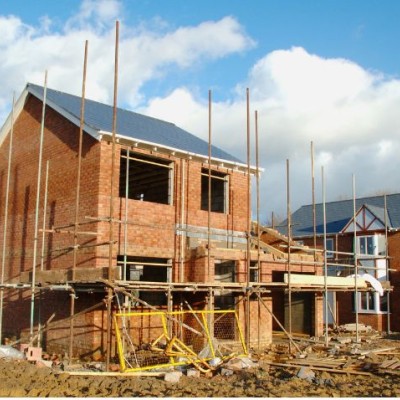How to improve your property's EPC rating

Any property which is built, sold or rented in the UK requires an Energy Performance Certificate (EPC). It measures the energy efficiency of a property, ranging from A (most efficient) to G (least efficient). Improving your EPC rating not only reduces your carbon footprint but can also lower your energy bills and increase your property's value. Each EPC is valid for 10 years from the date it’s issued. Whether you're a homeowner or landlord, here are several actionable tips on how to improve your property's EPC rating:
1. Upgrade your insulation
Don’t underestimate the importance of thorough insulation in making a property more energy efficient. Around a third of all the heat lost in an uninsulated home escapes through the walls, so especially if your home has cavity walls, you should look into insulating them to significantly help improve your EPC rating.
Adding insulation in the loft if you have one is fairly easy to install and can make a huge difference to your property's energy efficiency as well as your bills.
Floor insulation is worth looking into as well. Many homes – especially newer ones – will have a ground floor made of solid concrete. This can be insulated when it needs to be replaced, or can have rigid insulation laid on top. Older homes are most likely to have suspended timber floors, which can be insulated by lifting the floorboards and laying mineral wool insulation supported by netting between the joists.
We'd always advise contacting a professional when it comes to installing insulation.
2. Install double or triple glazing
Properly insulated doors and windows should be high on your priority list. Upgrading them won’t just improve your home’s EPC, it can reduce condensation and noise too.
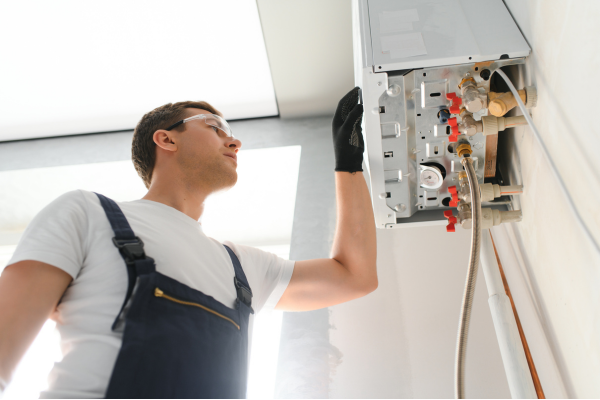
3. Invest in your boiler
You can definitely cut your energy bills with a new, energy-efficient boiler. Whilst this is an investment in itself, the initial cost outlay is well worth the potential savings a new boiler could have for you or your tenants if you're a landlord. A combi-boiler tends to be the most energy efficient option when it comes to heating water on demand, as they combine two functions of your household (hot water/heating) into one compact system.
4. Insulate your hot water cylinder
If you have a cylinder for your hot water and aren't able to invest in a new boiler, you should consider getting a jacket fitted around your tank if there isn't one already. It should be at least 80mm thick in order to be the most beneficial for energy efficiency.
5. Book a regular service
Ensure your boiler or heating systems are regularly serviced to maintain efficiency (and to have peace of mind that they are safe!).
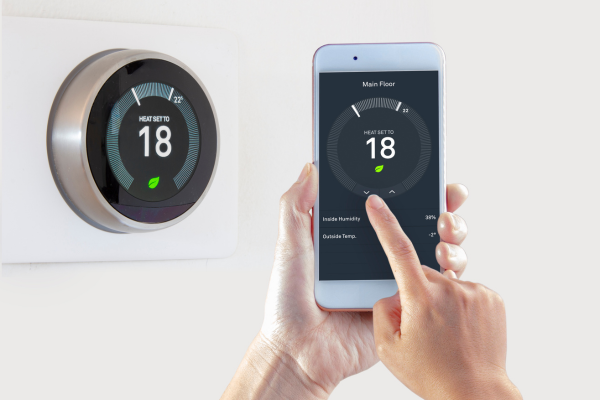
6. Use a smart thermostat
Smart thermostats are not only good for reducing energy wastage, but you can set up schedules to match your daily routines, ensuring your home is always at a comfortable temperature when you're there! Some systems allow you to control different areas of your home independently, providing more precise control over your environment and reducing energy wastage in rooms you're not using. With many smart thermostats, you can control it from anywhere using a smartphone app, allowing you to adjust settings even if you're away.
7. Seal drafts
Use draft excluders and seal gaps around windows and external doors using a caulking gun to prevent heat from escaping. For exteriors, use a caulk that is weather-resistant, like silicone or polyurethane. For interiors, you can use acrylic latex caulk, which is paintable.
8. Use energy-efficient appliances
Upgrade to appliances with high energy-efficiency ratings, such as A++ rated refrigerators, washing machines, and dishwashers.
9. Install energy-efficient lighting
Replacing traditional incandescent bulbs with energy-efficient LED or CFL lighting is a quick and inexpensive way to reduce electricity consumption. LED bulbs use more than 75% less energy than incandescent lighting.
10. Upgrade to a heat pump
Consider installing an air-source or ground-source heat pump. Heat pumps are highly efficient because they move heat rather than generating it. This can result in significant energy savings, especially in moderate climates. They can also both heat and cool your home, eliminating the need for separate systems like an air conditioning unit. Heat pumps are quite a big investment and may not be suitable for all properties, so it's best to do thorough research first.
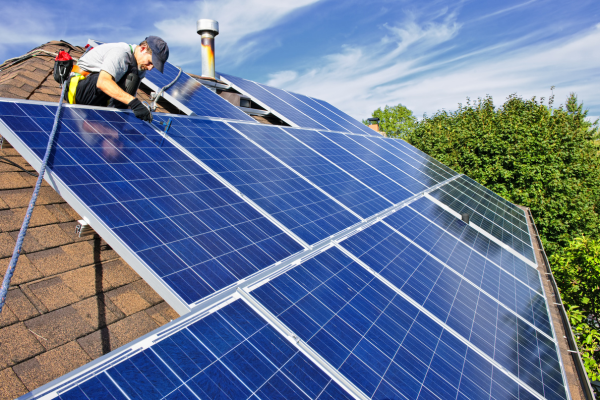
11. Install solar panels
Solar panels are becoming increasingly popular in the UK. Generating your own renewable energy by installing solar panelscan significantly boost your EPC rating. Some people may wonder if they're worth getting in the UK due to the climate we have, but solar panels don't need constant sun to still be highly beneficial! They will continue to generate energy for you in cloudy and rainy weather, it just won't be as much as summer time.
12. Buy reflective radiator panels
Place reflective panels behind radiators on external walls to reflect heat back into the room rather than letting it escape through the walls. Rolls of foil sheets or panels can be purchased from as little as £10.
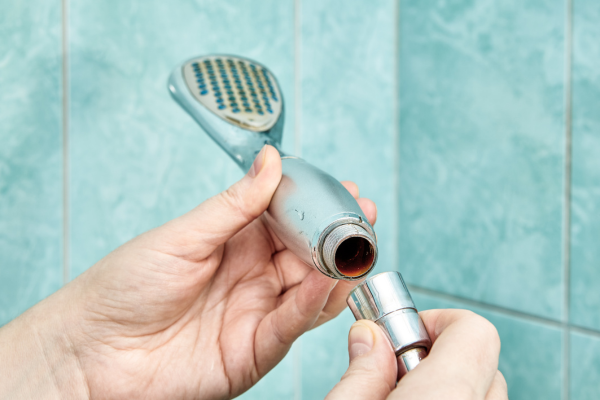
13. Use water efficiently
Installing a low-flow showerhead reduces the amount of hot water used, which means your boiler doesn’t have to work as hard. Repair any leaky taps - even a small drip can waste a significant amount of water over time.
14. Get a smart meter
Smart meters offer several advantages. They show your real-time energy usage in pounds and pence, allowing you to see how much you're spending on energy and adjust your usage accordingly. Seeing how much energy different appliances use can encourage more conscious energy consumption, such as turning off lights, reducing heating or cooling, or using energy-efficient appliances.
They provide real-time data on energy usage too, which means bills are based on actual consumption rather than estimates (something both homeowners and tenants will appreciate!). In the UK, the cost of installing a smart meter is generally covered by your energy supplier, so there is no direct charge to you.
Improving your EPC rating is not only beneficial for the environment but also for your wallet. By implementing some of these tips, you can improve your property's EPC, reduce your energy bills, and increase your home’s market value. Start with the most cost-effective measures and gradually invest in more substantial improvements to see a significant boost in your EPC rating.
You can find out more information on how best to boost your property’s energy efficiency by speaking to your local team. If your property is fully managed, your dedicated property manager will be able to arrange for any improvement works required.
Looking for advice?
If you're looking to let or sell your property, we can help. Get in touch with your local branch or book in for a property valuation.

Contact Us
Got a question, general enquiry or something else?
You may also like


